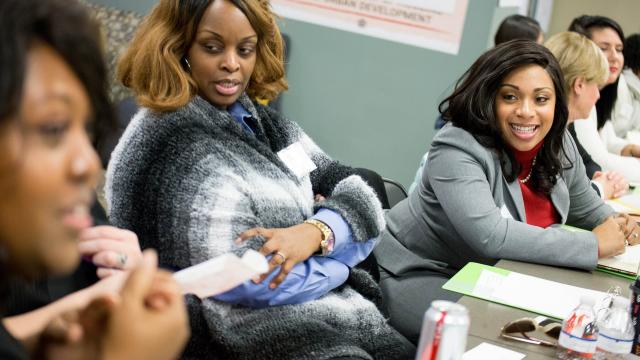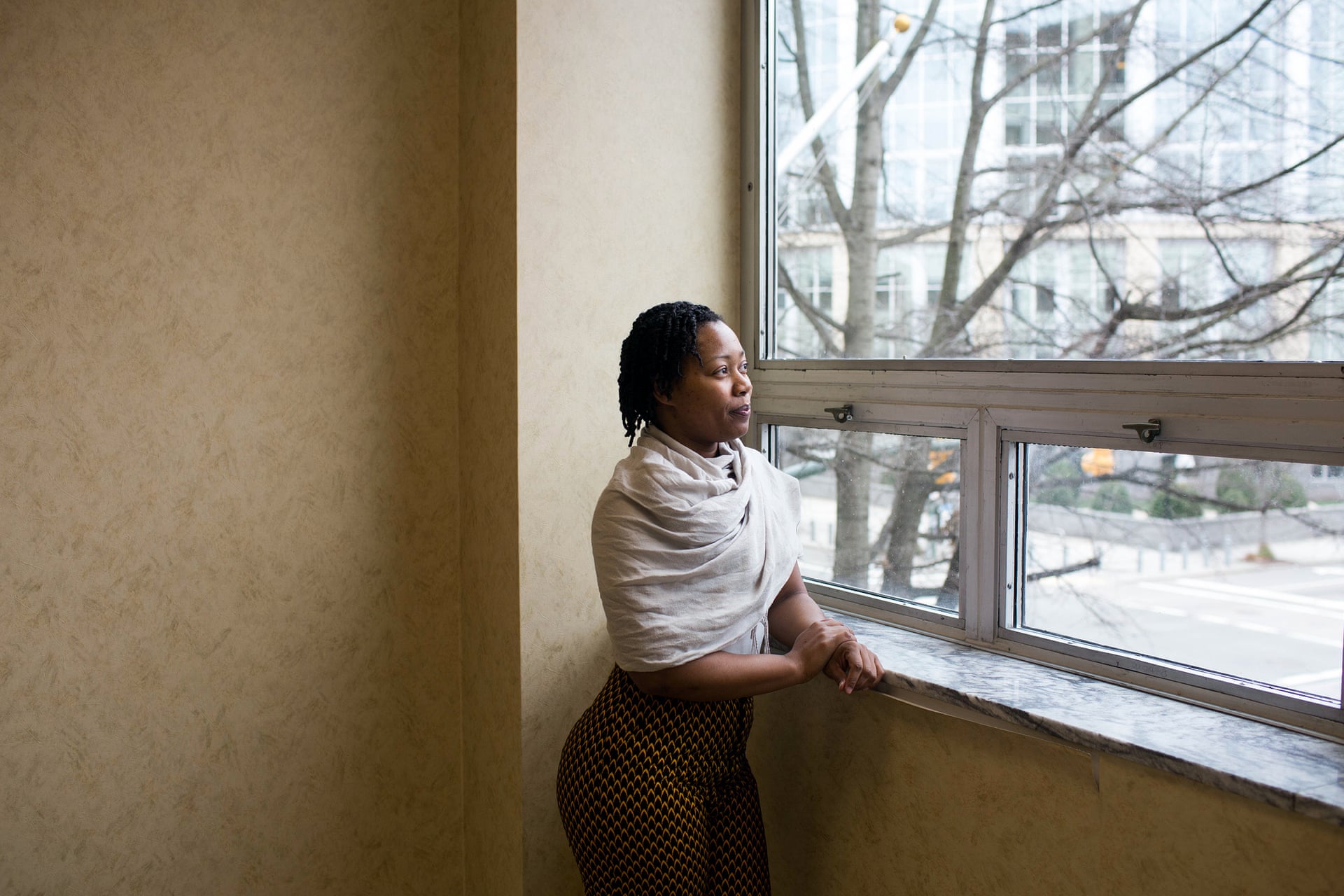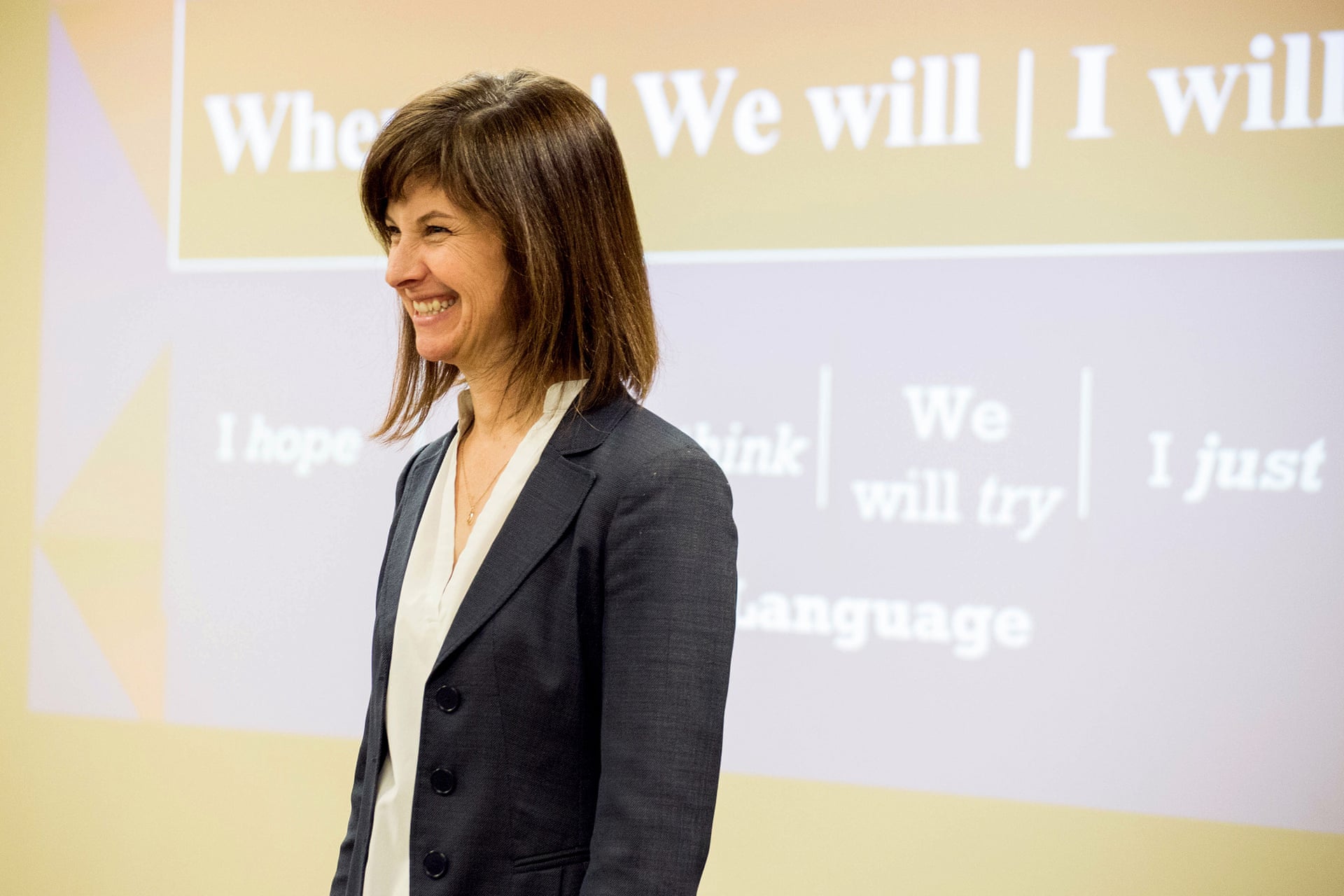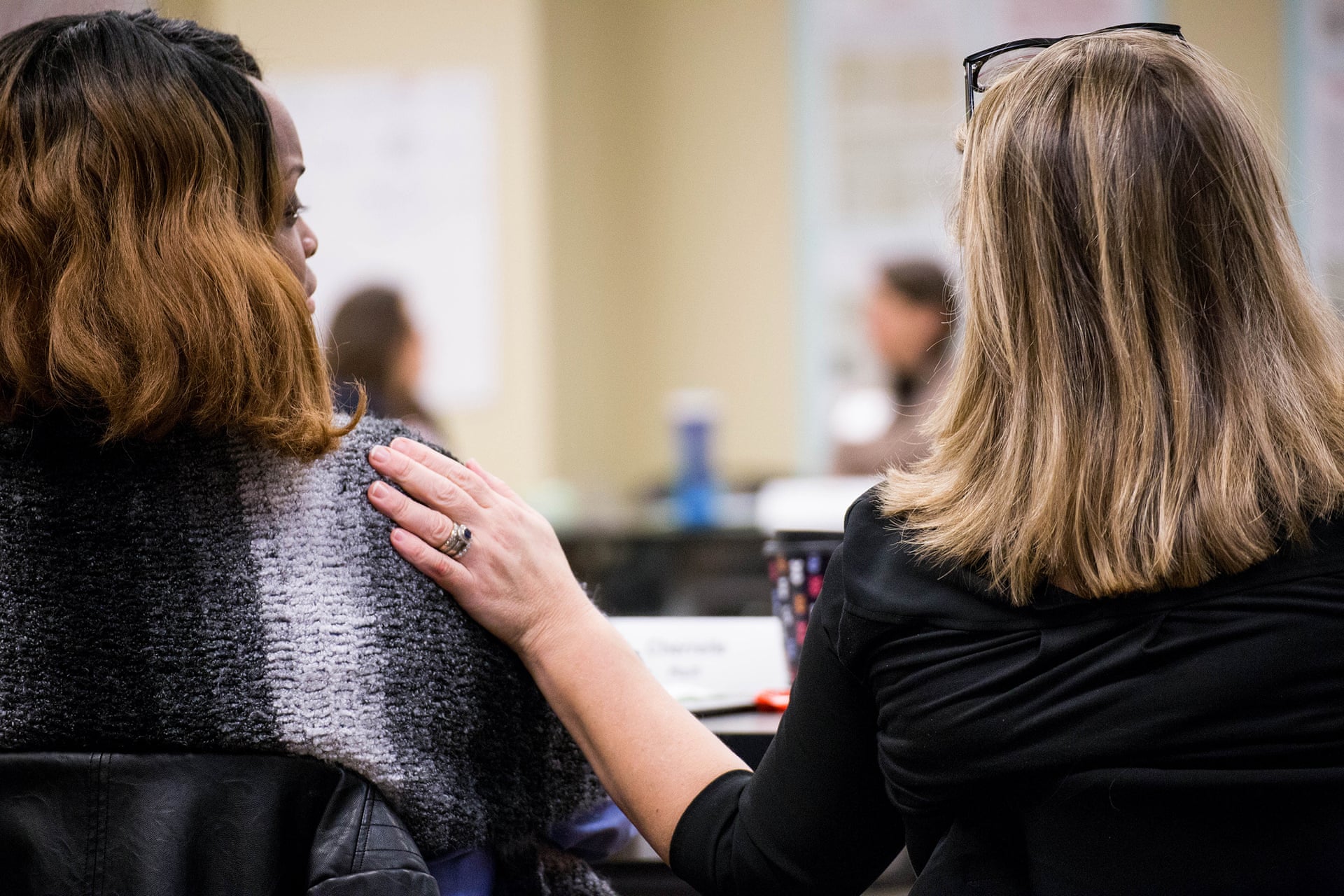
Women participate in the Emerge Virginia program, which prepares Democratic women to run for office. Photograph: Eslah Attar/The Guardian
Just days after the most female freshman class in American history was sworn into the 116th Congress in January, the next wave of aspiring women candidates gathered in the basement of a university building in downtown Richmond, Virginia.
Together over the next six months, these women will learn the fundamentals of running for office – how to build a campaign team, deliver a stump speech and raise money.
The prospective candidates mostly lack political experience, but they have ambition – a trait that is celebrated at Emerge Virginia, part of the Emerge America national training program for Democratic women started in California in 2002. The non-profit aims to help women overcome the obstacles that have long kept the corridors of power overwhelmingly male.
One of the new trainees in the Virginia program is Ivory Dean, a science policy fellow in Washington DC, who plans to start her career in local politics. But, with Washington in turmoil and a nation divided, she fully intends to one day run for president of the United States.
“We need leaders now more than ever,” Dean said. “So I asked myself, why am I waiting for someone else to come along and be that leader?”
The 2018 midterm elections saw the biggest jump in women elected to the House since the original “Year of the Woman” in 1992. The new Congressional class was the youngest and most diverse in history, ushering in a wave of political firsts that include the first two Native American women and the first two Muslim women elected.
“In politics there are these jolts to the system and something fundamental happens,” said Jennifer Lawless, a professor at the University of Virginia, who writes extensively about women in politics. “It’s likely that 2018 was that year.”
But the 116th Congress is still only 23.7% female.
Now the task for groups like Emerge, Emily’s List, She Should Run and VoteRunLead, which have seen record recruitment since Donald Trump’s election, is to make sure 2018 wasn’t just a “a fad, fancy, or a year”, in the words of the trailblazing senator Barbara Mikulski – and that progress towards equal political representation for women not only continues but accelerates.
There’s optimism that the gains made in 2018 are a sign of lasting change.
“The trail is being blazed on a daily basis by other women candidates,” said Julie Copeland, the executive director of Emerge Virginia. “I just don’t see any signs of that changing.”
Sitting around the horseshoe table near Dean was Jenny High, a business consultant from Glen Allen, north-west of Richmond. She is eyeing an opening on the local school board. Laura Sellers, a counterintelligence analyst from Stafford and the only woman in the Emerge Virginia 2019 cohort to hold elected office – had just committed to challenging the Republican incumbent in Virginia’s senate district 28.
Over the next several months of training, Copeland will help connect the trainees with party leaders, elected officials and the sprawling network of Emerge alumnae – many of whom are now positioned to help other women climb the ladder.
In early 2017, Copeland received a text message from Jennifer Boysko, an old friend and alumna of a previous Emerge Virginia program who was, at the time, a member of the Virginia house of delegates. Boysko told Copeland she had overheard in the chamber cloakroom that the incumbent from Virginia’s 56th district would not seek re-election in that year’s state races.
Copeland immediately thought of two women in the current training program: Melissa Dart and Abigail Spanberger. Neither had ever run for office before but she believed they were ready. She learned that Spanberger was already considering a run for Congress, so Copeland encouraged Dart and she decided to give it a go.
“This is what men have done since … forever,” Copeland said. “Now we finally have women on the inside who are helping to build that pipeline.”
In June 2017, Dart won her primary. Though she ultimately lost to the Republican in the staunchly conservative district, Dart and many of her staffers put their efforts into Spanberger’s congressional campaign.
In November 2018, Spanberger, a former spy, ousted conservative Republican David Brat in a coup for Democrats. Boysko, who started the chain, won a special election to take the state Senate seat left by Jennifer Wexton, who flipped the took her place on Capitol Hill as a rookie member alongside Spanberger and the rest of the record-setting female class.
As for Dart, she will be on the ballot again this year, running for a seat on the Henrico county school board.
“We learned in candidate training that if you’re not at the table you’re on the menu,” she said, explaining her decision to run again. “We are so done with the sidelines. It’s like un-ringing a bell. You can’t.”
Not this time, says Stephanie Schriock, president of Emily’s List, the fundraising powerhouse that has helped to elect pro-choice women since 1985.
“The history we made in 2018 wasn’t the end of our work, and it wasn’t the beginning – it was a culmination of decades of hard work by our organization and our movement, and a sign of much more to come in the years ahead,” she said.
Debra Walsh, director of the Center for American Women and Politics at Rutgers University, thinks the female-led activism and momentum generated by big gains for women in the Trump era are signs that 2018 was not an outlier – but neither was it “mission accomplished”.
“The reality is that yes, this was a very good year for women,” Walsh said. “We had a record number of women running, but we need to see more, because we know that when women run they win at the same rate as men do.”
In 2020, more women are running for president than ever before. But after the defeat of Hillary Clinton, the first ever female nominee of a major party, some Democrats are wary of a woman leading the party’s ticket.
Spanberger, the newly elected Virginia congresswoman, is baffled by this analysis. Before 2018, the voters of Virginia’s 7th district had never elected a woman – or a Democrat – to the seat.
“There was a lot of nail-biting about what sort of candidates can win in competitive districts,” Spanberger told the Guardian. “One of the lessons we learned in 2018 is that no matter what has historically been the case we cannot judge what voters want because we’ve now been proven wrong multiple times.”
As the afternoon waned on the first day of Emerge Virginia’s candidate training, communication coach Courtney Knapp asked for a show of hands of those who had ever been told they were “too” emotional, “too” abrasive, or “too” ambitious. One by one, hands went up.
“Welcome to the too club,” Knapp said. “Now take away the too and all of these are great attributes.”
The exercise sparked an animated conversation about how to run authentically in the face of stereotypes, double standards and gender bias.
Listening to her classmates,High, of Glen Allen, smiled and clasped her hands together.
“The class of 2019 is going to have the most women come out as elected officials,” she said, her voice booming over the buzz. There was a pause and then a burst of applause.
“We are en fuego, ladies,” High told them. “En fuego.”
Originally published by The Guardian
















